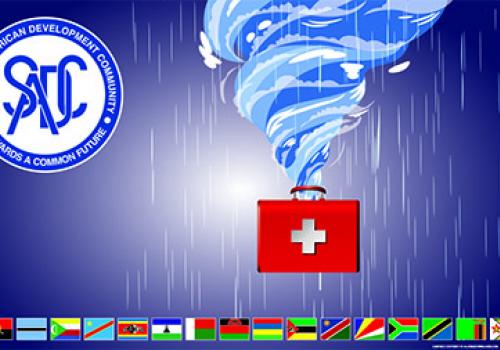The Southern African Development Community (SADC) Council of Ministers has endorsed the offer by Mozambique to host the SADC Humanitarian and Emergency Operations Centre (SHOC) which will be responsible for facilitating enhanced regional disaster risks preparedness, response and early recovery to support Member States affected by disasters.
The Council of Ministers on 12th March, 2021 held a virtual meeting to discuss policies, strategies and programmes geared towards consolidating SADC regional integration in fulfilment of Council’s mandate as spelt out in Article 11 of the SADC Treaty. Honourable Verónica Nataniel Macamo Dlhovo, Minister of Foreign Affairs and Cooperation of the Republic of Mozambique, chaired the meeting in her capacity as the Chairperson of the SADC Council of Ministers.
The SADC Council noted that the SHOC will enhance the coordination of support towards Member States affected by disasters.
The SADC Region has over the years stressed the need to strengthen climate resilience as well as general preparedness against natural disasters such as droughts, cyclones and floods. These multiple hazards have highlighted the importance of cooperation and coordinated response, as well as the need to come up with innovative mechanisms to strengthen resilience, preparedness and responsiveness for disasters, including pandemics, epidemics and related hazards.
In the past few decades, the SADC Region has experienced an increasing frequency and severity of droughts, floods, cyclones and locusts that have been attributed to climate change and variability, resulting in food insecurity and other socio-economic impacts.
The Region has faced a number of weather-related phenomena such as tropical cyclones which caused extensive flooding in SADC Member States such as the Comoros, Madagascar, Malawi, Mozambique, South Africa, United Republic of Tanzania and Zimbabwe.
Cyclone Idai, which hit the Region in 2020, was recorded as one of the worst tropical storms to ever affect Africa and the southern hemisphere.
The 2019 annual report of the United Nations Framework Convention on Climate Change said 91 percent of all major disasters and 77 percent of economic losses from natural disasters during the year were attributed to extreme weather events.
This percentage is expected to increase as the World Meteorological Organisation has projected that global temperatures would rise by between three and five degrees Celsius by 2100.

